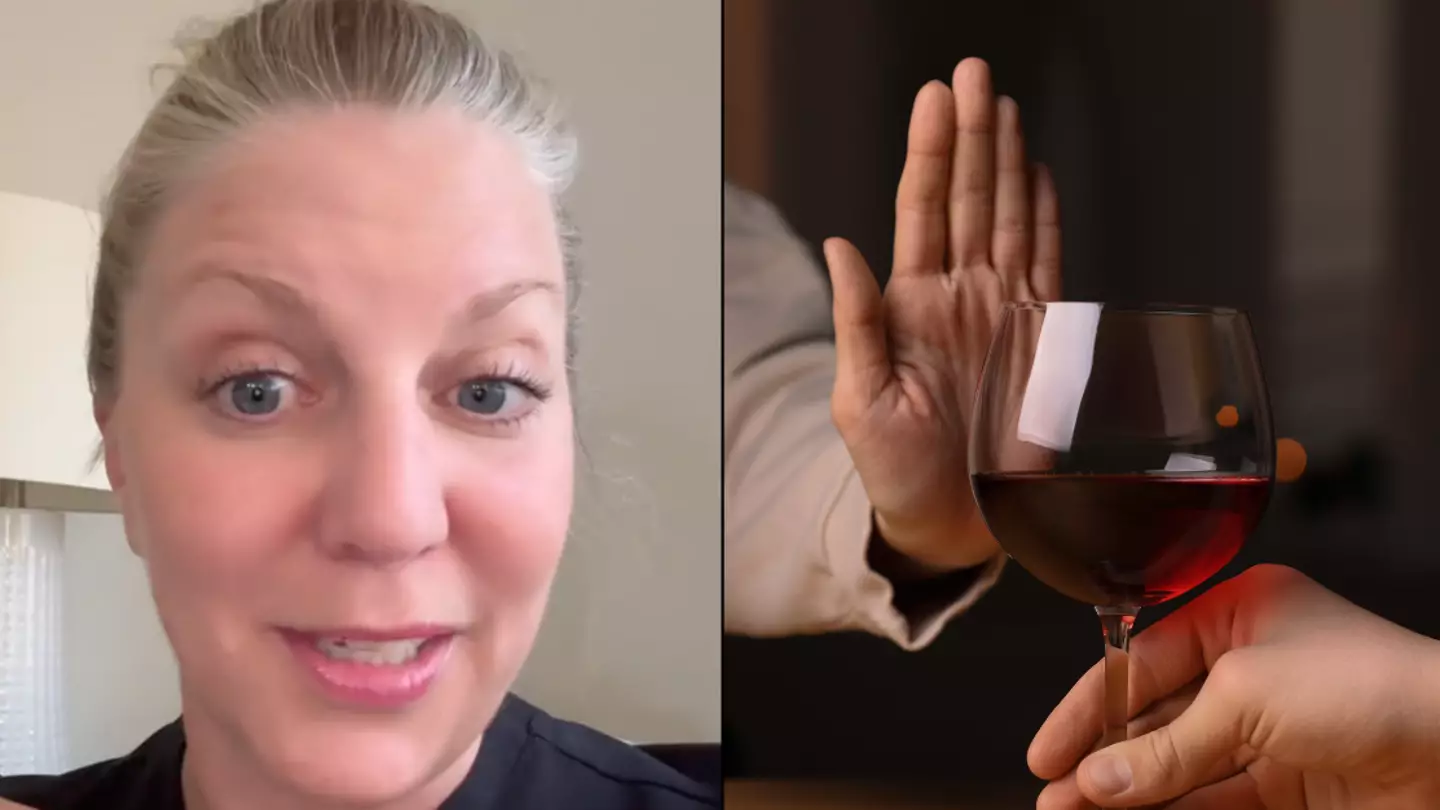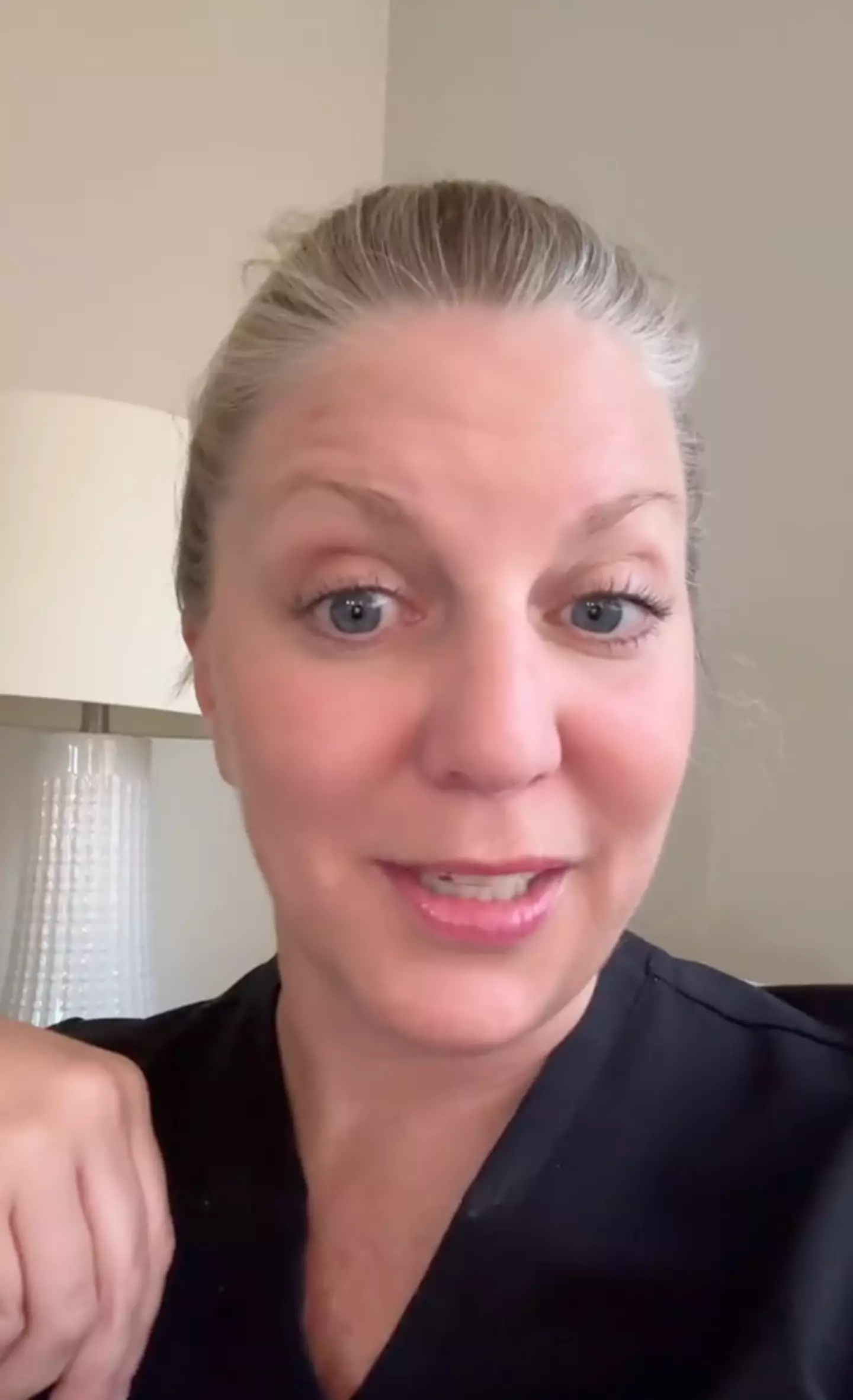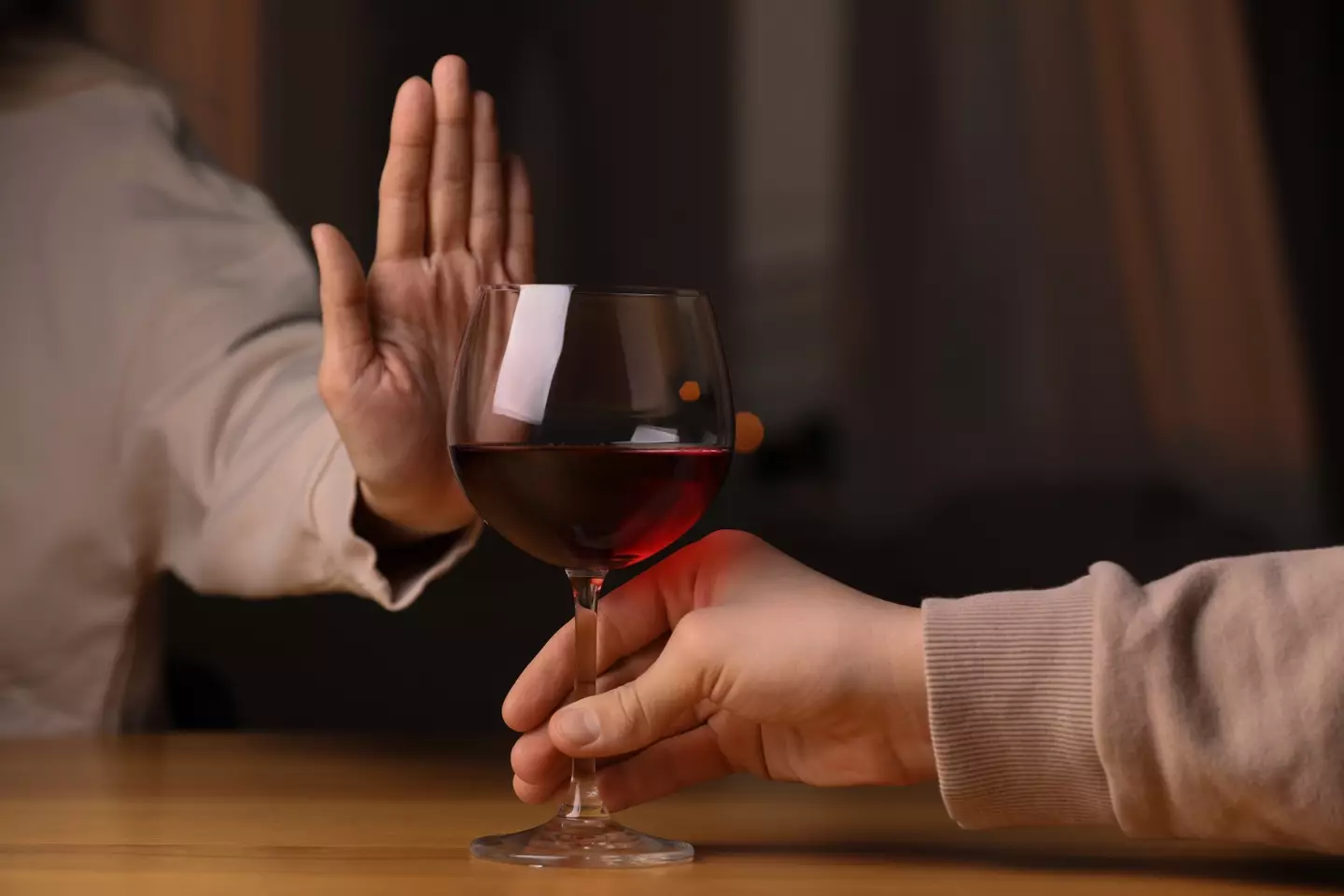
A lot of people don't appreciate being labelled or pigeonholed by one particular attribute - but according to a hospice nurse, coming to terms with this stamp could give you the boot up the backside you desperately need, like it did for her.
Julie McFadden might be the first port of call for social media users who need a hand coping with grief or coming to terms with death, yet she's also got a lot of wisdom to share from her own life experiences.
The hospice nurse, based in Los Angeles, has previously opened up about how she overcame her reliance on alcohol at the age of 33 - confessing she only realised she had a problem when she stopped drinking.
And in another recent video, she delved further into her sobriety journey while explaining what she believes the term 'dry alcoholic' means as she reckons she was one.
Although the phrase is not professionally recognised and some people believe it can perpetuate stigmas about alcohol abuse, Julie said that it is 'thrown around a lot in recovery' and it is an expression which she relates to.
Advert
"I believe I was a dry alcoholic, so I'll just speak from my experience," the author told her 1.6million TikTok followers.
"So, being a dry alcoholic is someone who has had a problem with drinking, quits drinking, but never gets help.
"You're no longer drinking, so you're dry...but you're still an alcoholic."
According to WebMD, the term was coined by the creators of Alcoholics Anonymous (AA) to describe a person who has not addressed the root cause of their dependence on booze and is therefore at risk of relapsing.

Advert
Julie explained that from her experience, there tends to be a 'common personality' type which comes along with being a dry alcoholic, and the people around them often feel the wrath of this.
She said that people experiencing this tend to be 'irritable, controlling, compulsive, mean, negative, maybe even nasty' as well as being grumpy, isolated and very anxious - essentially, all of their emotions are 'really, really heightened'.
"Because your medicine, which was alcohol, has now been taken away," the nurse continued. "I fully experienced this. "When I quit drinking, at first, I didn't claim to be an alcoholic. I just thought I needed to quit drinking. For 11 months, I did not drink, and the dry alcoholic in me came out.
"I was more depressed, more anxious, more isolated, more everything negative. More irritable, more impulsive, more controlling. Everything that I didn't like about myself, or that I couldn't control or regulate, just come up.
"It's wildly uncomfortable, it can almost feel like you're living with your skin inside out, like everything is raw."
Advert

Basically, being down in the dumps doesn't even cut it when describing what a dry alcoholic is going through both mentally and physically, as Julie notes that a lot of people tend to 'isolate' themselves while feeling 'extra sad'.
"It manifests differently in everyone, but that's how it manifested in me," the end-of-life carer went on, adding that the sooner you come to terms with your problem, the sooner you can get started on fixing the underlying issues.
"People in 12-step programmes might say you're irritable, restless and discontent," the 41-year-old said. "I had many people in my family who quit drinking for many, many years, but never got help.
"They were a lot like this. And guess what, so was I! The darkest I have ever been is when I quit drinking for 11 months and didn't get help. That is what dry alcoholism is.
Advert
"Again, this is just my own personal experience, this isn't for everyone, not everyone believes this, but I certainly do because I went through it. I got help in a 12-step programme, that I still do today eight years later.
"I am no longer irritable, restless and discontent. I am happy, joyous and free."
Social media users flooded the comment section with praise for Julie, while some revealed that her video had really resonated with them as they were dealing with 'dry alcoholics' in real life.
Advert
One wrote: "This is my brother to a T. "
Another said: "I'm not an alcoholic, but this was a very enlightening video," while a third added: "Wow. This is me."
And a fourth wrote: "Thanks for your truth, transparency and vulnerability!"
Please drink responsibly. If you want to discuss any issues relating to alcohol in confidence, contact Drinkline on 0300 123 1110, 9am–8pm weekdays and 11am–4pm weekends for advice and support.
Topics: Health, Mental Health, TikTok, Food And Drink, Alcohol